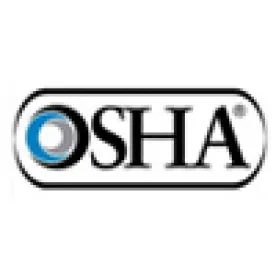Many more franchisors are likely to be judged to have a joint employer relationship with franchisees, subjecting them to enforcement by the Occupational Safety and Health Administration, under a draft policy reported to be circulating within the Department of Labor (DOL).
The draft document, prepared by DOL’s Office of the Solicitor, was spurred by a landmark decision reached last month by the National Labor Relations Board (NLRB) in a contentious 3-2 vote that is widely seen as giving a boost to union organizing efforts and increasing organized labor’s collective bargaining leverage. (Browning-Ferris Industries of California, Inc., et al., NLRB, 32–RC–109684, Aug. 27, 2015.) A cascading effect of that decision, reflected in the DOL Solicitor’s draft, could result in franchising corporations being held responsible, at least in part, in OSHA and other labor law enforcement actions against franchisee businesses, as well. If made final in its current form, the new policy could give OSHA access to many national franchising firms that heretofore had escaped liability for alleged safety and health violations of their franchisee partners.
The draft policy addresses whether, for purposes of the Occupational Safety and Health Act, a joint employment relationship can be found between the franchisor and the franchisee, leading both entities to be liable as employers, according to Inside OSHA Online, which said it had obtained a copy of the document.
“Ultimate determination will be reached based on factual information about the relationship between the franchisor and franchisee over the terms and conditions of employment,” the guidance states, according to the media source. “While the franchisor and the franchisee may appear to be separate and independent employers, a joint employer standard may apply where the corporate entity exercises direct or indirect control over working conditions, has the unexercised potential to control working conditions or based on the economic realities.” Control includes such employment matters as hiring, firing, discipline, supervision, and direction.
The draft policy details a laundry list of documents and information OSHA should obtain to reach its determination. These include the franchise agreement; how the franchisee obtains the franchise; what it submits to corporate; if it pays fees to corporate, a royalty or other compensation to use corporate’s trademarks and marketing system; if it has to agree to certain corporate conditions; and if it has to submit plans to corporate. In addition, OSHA is advised to determine the nature of the franchisee’s interaction with corporate and with whom it interacts, if corporate has any ownership interest in the franchise or any investment in its equipment, if corporate selects or approves the location of the franchise or its advertising, and what rules or policies corporate has on brand standards.
Moreover, the draft policy instructs OSHA to find out: if corporate does any kind of review after the franchise is set up; what kind of ongoing communications takes place between the franchisee and corporate; if the franchisee contacts corporate for assistance after the franchise begins operating; if the franchise is separately incorporated; if corporate officials visit the franchise, and if so, what corporate does during its visit; and if corporate provides manuals detailing how a franchisee should operate its franchise, including the best way to staff a franchise or define job responsibilities.
Also, does corporate provide a common set of operating procedures, create menus and/or products for the franchise to sell, approve franchisee signage, or require use of a specific computer system? Corporate control over safety and health policies and practices at the franchise should be determined, too, according to the draft.
The business community is still assessing the potential fallout from the NLRB ruling. The case involved the relationship between Browning-Ferris Industries and a company that supplied the waste and recycling hauler with employees to perform various work functions, and stemmed from an organizing drive by the Teamsters union. In a press release about the ruling, NLRB said, “With more than 2.87 million of the nation’s workers employed through temporary agencies in August 2014, the Board held that its previous joint employer standard has failed to keep pace with changes in the workplace and economic circumstances.”
Critics have pointed to a vigorous 29-page dissenting opinion in the Board case suggesting that reliance on the “economic realities” and indirect control between a franchisor and its franchisee (and its employees) to impose liability on the franchisor is beyond OSHA’s authority The International Franchise Association (IFA) has already formed an opinion about the regulators’ intent. According to Inside OSHA Online, IFA has filed a Freedom of Information Act request with OSHA seeking to know the rationale behind questions OSHA inspectors are asking franchise owners, which IFA said “appear specifically designed to presume a joint employer relationship between brand companies and local franchise small business owners.”




 />i
/>i

